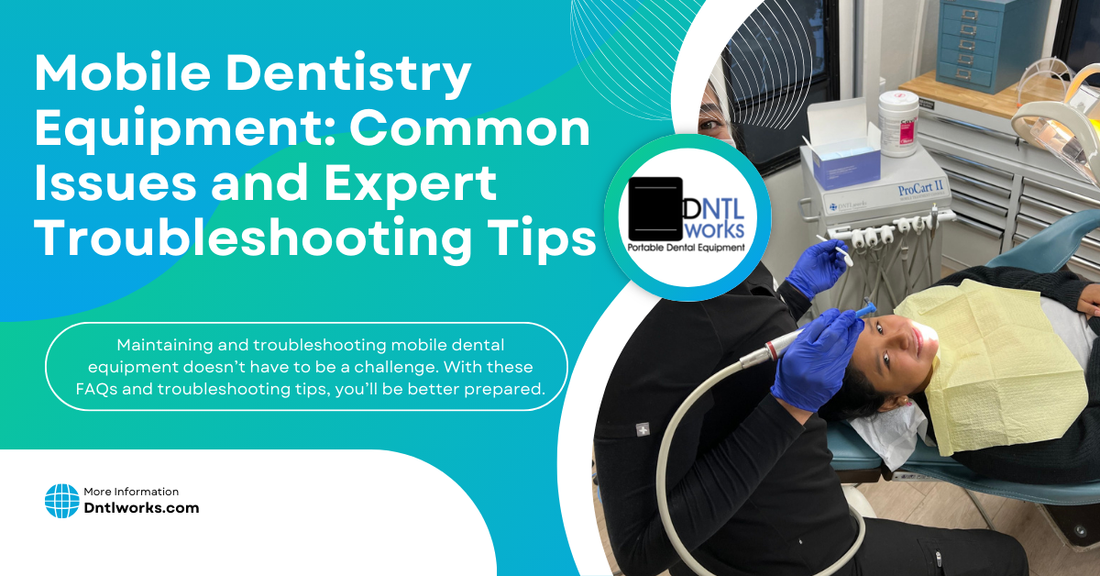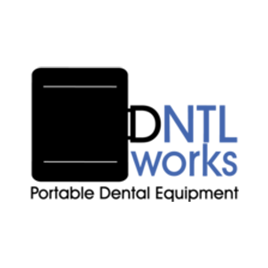
Mobile Dentistry Equipment: Common Issues and Expert Troubleshooting Tips
Share
Mobile dentistry equipment is designed to deliver high-quality care in non-traditional settings, but it also comes with its unique set of challenges. From maintenance issues to equipment setup, there are plenty of questions that dental professionals commonly encounter. Here’s a list of frequently asked questions and troubleshooting tips to help keep your mobile dental practice running smoothly.
1. How Do I Set Up Mobile Dental Equipment Efficiently?
Efficient setup is crucial to providing high-quality care on the go. To streamline your process, follow these setup tips:
- Plan Ahead: Pack your equipment and supplies according to a checklist. Include essentials like your mobile unit, disposable items, and cleaning supplies.
- Organize by Function: Arrange equipment and supplies in a way that minimizes movement during procedures. Place commonly used tools within easy reach to reduce setup time between patients.
- Test Equipment on Arrival: Conduct a quick equipment check at each new location to ensure everything is functioning properly before starting patient care.
Pro Tip: Consider using labeled, stackable bins or bags to keep items organized and easy to transport. This way, setting up becomes quick and efficient!
2. What Maintenance Do Mobile Dental Units Require?
Regular maintenance is essential to keep your equipment running efficiently and to avoid unexpected downtime. Here’s a basic maintenance schedule:
| Maintenance Task | Frequency | Description |
|---|---|---|
| Flush Suction Lines | Daily | Prevents buildup and maintains suction power by clearing lines after each use. |
| Clean Air/Water Syringe | Daily | Ensures reliable water and air flow during procedures. |
| Inspect Filters | Weekly | Check and clean filters to prevent clogs and ensure optimal performance. |
| Examine Hoses and Seals | Weekly | Inspect for any signs of wear or leaks to maintain efficiency. |
| Full System Inspection | Monthly | Perform a complete check of all components to ensure no parts need replacing. |
Insight: Regularly maintaining your mobile unit minimizes costly repairs and downtime, ensuring uninterrupted patient care.
3. What If My Mobile Unit Loses Suction Power?
Weak suction can be caused by a variety of issues, but it’s usually something that can be fixed quickly. Here’s a simple troubleshooting guide:
Common Troubleshooting Steps for Suction Loss
Step-by-Step Fix:
- Check the Waste Container: Make sure the waste container is not full. An overfilled waste container can lead to weak suction.
- Flush the Suction Lines: Flush the lines after each patient to prevent buildup and maintain suction strength.
- Inspect Seals: Check for any loose or damaged seals that might be causing an air leak.
- Clean or Replace Filters: If the filters are clogged, clean or replace them to restore airflow.
4. Why Is My Mobile Unit Making Unusual Noises?
Unusual noises are often a sign that something may be amiss. Here’s how to troubleshoot noise issues in your mobile dental unit:
- Check for Loose Components: Vibration during transport may loosen some parts, so make sure all screws, knobs, and fasteners are secure.
- Clean Filters and Hoses: Clogged filters or partially blocked hoses can cause strain on the unit, leading to unusual noises.
- Inspect the Compressor: If the noise persists, the compressor may need maintenance or oiling (for non-oil-free units). Check with your equipment’s manual for specific maintenance guidance.
Fun Fact: Did you know that regular filter cleaning can reduce equipment noise by up to 30%? Proper airflow keeps the motor running smoothly, reducing strain and noise.
5. How Can I Extend the Life of My Mobile Dental Equipment?
Proper care and handling can go a long way in extending the lifespan of your equipment. Here are some best practices:
Best Practices for Equipment Longevity
Tips for Maximizing Equipment Life:
- Regular Maintenance: Perform daily, weekly, and monthly maintenance to keep all components in optimal condition.
- Proper Storage: Store your mobile unit in a cool, dry place, away from direct sunlight or extreme temperatures.
- Safe Transport: Secure equipment properly during transport to avoid damage from vibrations or rough handling.
- Correct Usage: Follow the manufacturer’s instructions and avoid overloading or forcing equipment to perform beyond its capabilities.
6. When Should I Contact Technical Support?
While many issues can be resolved with basic troubleshooting, there are times when it’s best to call in the experts. Reach out to technical support if you encounter any of the following:
- Persistent Suction Problems: If suction remains weak despite following all troubleshooting steps, technical support can help diagnose the issue.
- Electrical Issues: Power failures, sparking, or any other electrical issues should be handled by a professional to ensure safety.
- Unusual Noises or Smells: Persistent noise or unusual smells from the unit may indicate a mechanical or electrical problem that requires expert attention.
Tip: Keep your equipment manual and warranty information on hand so you can provide the technician with accurate details when seeking assistance.
Conclusion
Maintaining and troubleshooting mobile dental equipment doesn’t have to be a challenge. With these FAQs and troubleshooting tips, you’ll be better prepared to address common issues and keep your equipment in top shape. Regular maintenance, proper setup, and knowing when to seek professional help are key to ensuring smooth operations and delivering high-quality care in any setting.
Have more questions about mobile dentistry equipment? Check out our blog for additional resources, tips, and insights!
